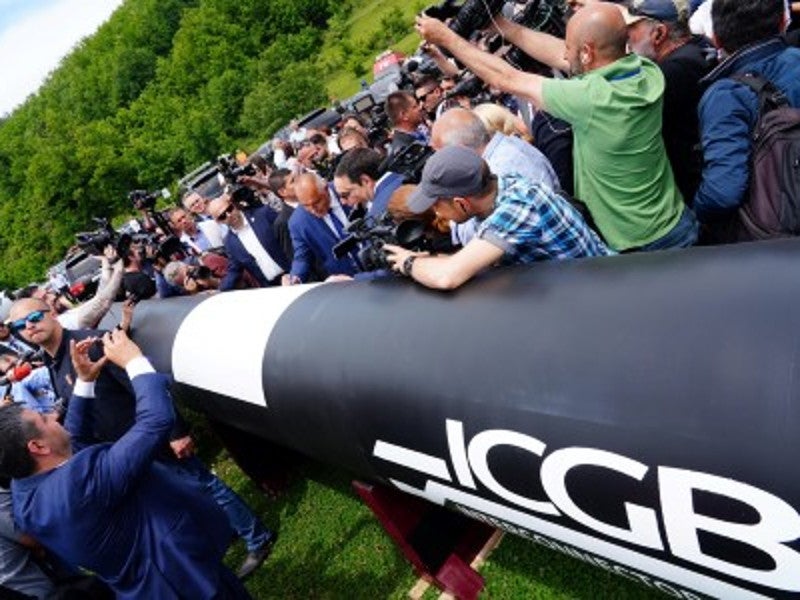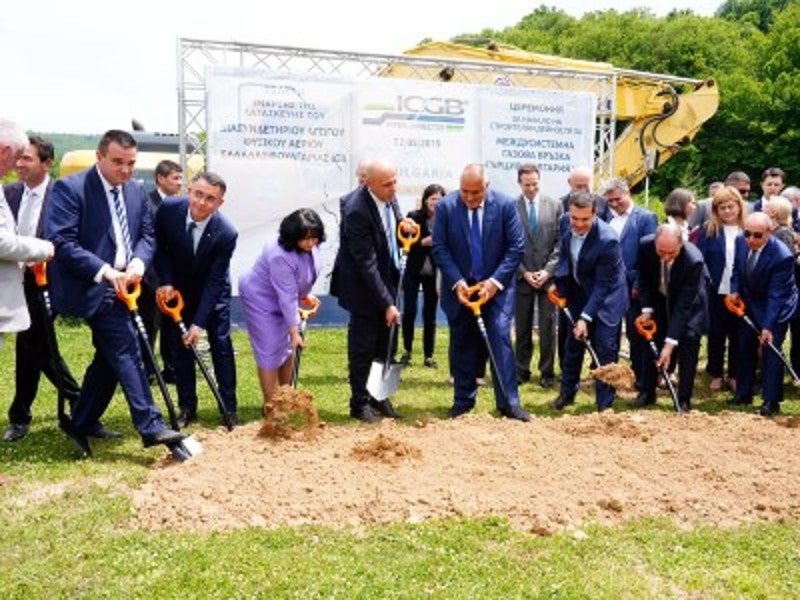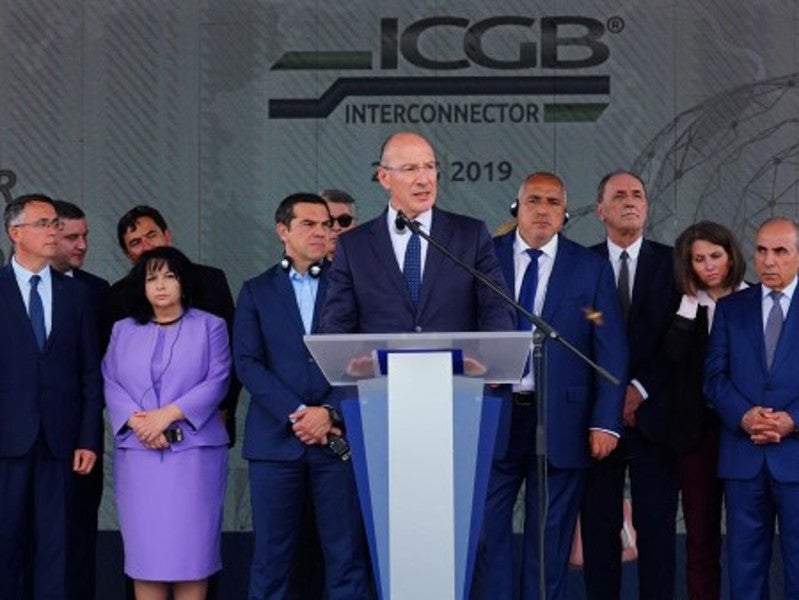Gas Interconnector Greece-Bulgaria (IGB) is a 182km-long trans-border natural gas pipeline under construction to transport gas from Greece to Bulgaria.
The €240m ($271m) pipeline project is being developed and will be operated by ICGB, a 50:50 joint venture between IGI Poseidon and Bulgarian Energy Holding (BEH). Registered in Greece, IGI Poseidon is a joint venture of Greek public gas corporation DEPA(50%) and Italian energy company Edison (50%).
Recognized as an important project under the European Union’s (EU) Central and South-Eastern European Energy Connectivity (CESEC) initiative, the Gas Interconnector Greece-Bulgaria pipeline is intended to strengthen the security of gas supply to Bulgaria as well as the South East Europe (SEE) region.
Construction works on the IGB project were started in May 2019, while the trans-boundary pipeline is scheduled to enter service in 2020.
IGB pipeline design and route details
The 182km-long Gas Interconnector Greece-Bulgaria pipeline will originate at Komotini in Greece and terminate at Stara Zagora in Bulgaria. The pipeline will run 31km through Greece and 151km through Bulgaria.
The cross-border pipeline will receive gas supplies from the Trans Adriatic Pipeline (TAP) and the Greek National Natural Gas Transmission System (DESFA) and deliver the same to the Bulgarian Bulgartransgaz gas transmission system.
Connected to TAP, the IGB pipeline will allow Bulgaria as well as its neighbouring countries Romania and Serbia to access the gas supply from Azerbaijan, especially the gas produced at the Shah Deniz 2 gas and condensate field.
Designed to operate at a high pressure of 55barg, the 32in-diameter pipeline will be capable of transporting three billion cubic meters of gas a year (bcm/y).
The infrastructure for the project involves nine block valve stations, two terminal scraper stations, two gas metering stations at Komotini and Stara Zagora, and two off-take and automated gas regulation stations at Kardjali and Dimitrovgrad in Bulgaria.
Supervisory control and data acquisition (SCADA) and control and telecommunications facilities will also be developed.
The gas transportation capacity of the pipeline can be increased to 5bcm/y by installing a compressor station in future.
Gas Interconnector Greece-Bulgaria Financing
The financing for the €240m ($271m) project includes €46m ($52m) of equity investment from the project development partners, €45m ($51m) from the EU’s European Energy Programme for Recovery (EEPR), and €110m ($124m) of loan from the European Investment Bank (EIB).
The Bulgarian Government also provides €39m ($44m) of direct financial support for the project.
The IGB project development history
A memorandum of understanding (MoU) for the trans-boundary gas pipeline was signed between the governments of Bulgaria and Greece in 2009, while the joint venture IGB was formed in 2011.
The environmental approvals for the project from both the countries were received by October 2013, while final investment decision (FID) for the pipeline was reached in December 2015.
Contractors involved
J&P AVAX, a construction company based in Greece, is the engineering, procurement, and construction (EPC) contractor, while Corinth Pipeworks Industry, a steel pipe manufacturer also based in Greece, is the supplier of pipe joints.
TIBEI, a consortium of Tractebel Engineering Belgium, Tractebel Engineering Italy, Intber, Ipsilon Consult OOD, and Bulgaria Engineering EAD, was awarded the owner’s engineer (OE) contract for the project in March 2019.
EKO BUL CONTROL, a joint venture of Ecoengineering, Bul Stroy Control Engineering, and Control Engineering, was awarded the construction supervision contract for the IGB project in April 2018.
A consortium of Penspen and C&M Engineering was engaged for the front-end engineering design (FEED) and environmental impact assessment (EIA) for the project, while Gastec, a consulting company based in Bulgaria, provided technical design and engineering services for the Bulgarian section of the pipeline.





